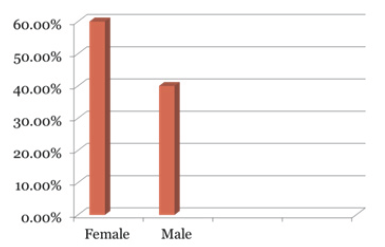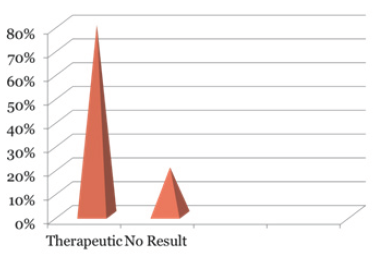- Submissions

Full Text
Modern Applications in Pharmacy & Pharmacology
Integrative Treatment of Type 1 Diabetic Patients
Sadeghi Seyedaghanoor*
Formal Member of LMHI, Medical Doctor and Professional Homeopathy, Iran
*Corresponding author: Seyedaghanoor Sadeghi, Formal Member of LMHI, Medical Doctor and Professional Homeopathy, Tehran, Iran
Submission: December 14, 2017; Published: February 20, 2018

ISSN 2637-7756Volume1 Issue3
Abstract
Type 1 diabetes is usually juvenile onset but may occur at any age. It is a chronic autoimmune condition, in which the pancreas produces little or no insulin. Insulin is a hormone needed to allow glucose to enter cells to produce energy. Yearly more than 200,000 cases are diagnosed in the US according to the website, www.jdrfdsw.org/diabetes. However 80% i.e. 12 out of 15 of my patients had better numbers after taking homeopathic remedies. The results show a true and direct association between the use of homeopathic remedies and the lowering of FBS, and A1c. An indirect relationship between using the remedies and the need for insulin injections was reported. Increased need for insulin after discontinuing the remedies was also observed that is another valuable sign of the effects of the homeopathic remedies. Randomized clinical trials are suggested to assess the efficacy of homeopathic remedies in lowering and normalizing fasting blood glucose and HgbA1c.
Introduction
Type 1 diabetes is usually juvenile onset but may occur at any age. It is a chronic autoimmune condition, in which the pancreas produces little or no insulin. Insulin is a hormone needed to allow glucose to enter cells to produce energy. It occurs when the body's own immune system destroys the insulin-producing cells of the pancreas (called beta cells). Yearly more than 200,000 cases are diagnosed in the US according to the website, www.jdrfdsw.org/ diabetes. However 80% i.e. 12 out of 15 of my patients had better numbers after taking homeopathic remedies. Why?
"Healing of beta cells after high dilution remedies reach them i.e. part of dead Beta cells come to life after the entrance of the remedies. After discontinuing homeopathic remedies, beta cells are attacked by the autoimmune particles and the need to insulin rises again. (My hypothesis) Patients always need Insulin and are prone to ketoacidosis and weight loss. It is associated with other auto immune diseases (>90% carry HLADR 3 and/or DR4). However in 80% of my patients the need to insulin decreased, and when they didn't use the remedies their numbers rose again and their need to insulin increased thereafter.
Materials and Methods
It is a chronic autoimmune condition, in which the pancreas produces little or no insulin. Insulin is a hormone needed to allow glucose to enter cells to produce energy. Afterwards their rubrics were repertories i.e. analyzed by the Radar diagnostic software, to select the best possible remedy. Their blood sugars were monitored 3-5 times a day at home by standard glucometers. HGBA1c was tested every 3 months. They were told to continue taking their insulin as prescribed by their physicians. A formula was taught to them to taper their insulin as soon as they observed lowering of their fasting blood sugar. Female to male ratio: 9 patients were female i.e. 60% and the 6 other were male, i.e. 40% (Figure 1).
Figure 1: Female/male ratio.

Results
Eighty percent of the patients experienced better numbers of FBS and HgbA1c after taking homeopathic remedies including Phosphorus, Lachesis, Lycopodium, Natrium Muriaticum, Syzygium, Nux-vomica (Figure 2). More than 50% of the patients' parents reported better behavior and more compliance in addition to better FBS and A1c [1-4].
Figure 2: Positive therapeutic effects of homeopathic remedies.

Conclusion
The results show a true and direct association between the use of homeopathic remedies and the lowering of FBS, and A1c. An indirect relationship between using the remedies and the need for insulin injections was reported. Increased need for insulin after discontinuing the remedies, was also observed that is another valuable sign of the effects of the homeopathic remedies. Randomized clinical trials are suggested to assess the efficacy of homeopathic remedies in lowering and normalizing fasting blood glucose and HgbA1c.
References
- Hahnemann S (1810) Organon of Medicine, (6th edn).
- www.jdrfdsw.org/diabetes
- www.who.int/en
- http://Hpathy.com
© 2018 Sadeghi Seyedaghanoor. This is an open access article distributed under the terms of the Creative Commons Attribution License , which permits unrestricted use, distribution, and build upon your work non-commercially.
 a Creative Commons Attribution 4.0 International License. Based on a work at www.crimsonpublishers.com.
Best viewed in
a Creative Commons Attribution 4.0 International License. Based on a work at www.crimsonpublishers.com.
Best viewed in 







.jpg)






























 Editorial Board Registrations
Editorial Board Registrations Submit your Article
Submit your Article Refer a Friend
Refer a Friend Advertise With Us
Advertise With Us
.jpg)






.jpg)














.bmp)
.jpg)
.png)
.jpg)










.jpg)






.png)

.png)



.png)






